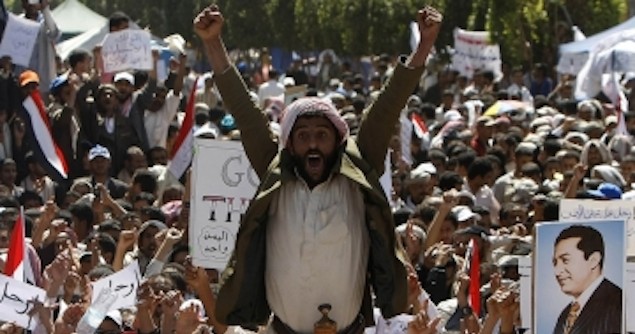Yemen: Higher Tensions but Lower Prospect of Sectarian Violence

While it is unlikely that the situation in Yemen will escalate to widespread sectarian violence, it will also be difficult for the Houthis to maintain power as they become increasingly isolated in the face of escalating economic pressures.
Background
Since the latest FDI update on Yemen, Houthi rebels have taken control of the capital, Sana’a, forcing the dissolution of the government and announcing the formation of a replacement led by them. A few days after that announcement, United Nations officials convinced the Houthis to resume negotiations with other political parties. These talks, however, seem to have failed again with two parties withdrawing within hours of the talks and the Islah party stating that it would boycott the talks according to the New York Times.
Comment
With the Houthi takeover, some have expressed concern over an outbreak of sectarian violence in Yemen. That the 65 per cent Sunni majority is now effectively facing Shia minority rule may be a cause of concern for the Shia-aligned Houthi rebels. This, however, is a rudimentary outlook as party rivalry in Yemen is not centred on a Sunni-Shia divide.
The majority of Sunni Muslims in Yemen belong to the Shafi’i branch and the majority of Shia Muslims to the Zaidi branch. In his book Regionalism and Rebellion in Yemen, Stephen Day noted that both of these branches are defined as moderate within the larger Sunni and Shia tradition and that the religious divide in Yemen was never as severe as that in other parts of the Middle East. The Shafi’i-Zaidi divide is unique to Yemen and its political implications, therefore, may be different to traditional understandings of the Sunni-Shia fault line.
According to Atiaf Alwazir, an independent writer based in Sana’a, the Houthi movement consists of both Zaidi and Shafi’i supporters, with many well-known Zaidi scholars and religious centres divided on their stance towards the Houthis. Support for the Houthi movement can be attributed to widespread discontent towards the previous government, along with the Houthis’ stance against fuel subsidies and government corruption. The nature of this support may thus reduce the likelihood of the Houthis implementing a sectarian Zaidi government.
On the other hand, continued conflicts between the Houthis and al-Qaeda in the Arabian Peninsula (AQAP) may be seen as rooted in sectarianism. As noted before, however, the majority of Yemenis are of the more moderate Shafi’i and Zaidi branches. It is unlikely, therefore, that the Houthi-AQAP rivalry will spill over into a broader, Yemen-wide, Sunni-Shia conflict.
In a televised statement, the Houthis announced that they would form a five-member presidential council to manage the country through a transitional period of up to two years. It will be difficult for the Houthis to maintain power for that length of time, given that Saudi Arabia has refused to continue disbursing billions of dollars in aid if a Houthi regime is in charge. Any significant support from Iran is also unlikely, given the heavy sanctions and low oil prices that are greatly weakening that economy. The Gulf Co-operation Council has also publicly denounced the actions of the Houthi rebels, stating that ‘this Houthi coup is a dangerous escalation which we reject and is unacceptable. It totally contradicts the spirit of pluralism and co-existence which Yemen has known’. Houthi control is also concerning to the international community, given that the rebels are publicly opposed to US drone strikes. Drone strikes in Yemen are a central part of the US campaign against AQAP and their success can be attributed to the support of the previous Yemeni Government.
A Houthi-run Yemen, therefore, is likely to become increasingly isolated while facing an array of challenges. This could help AQAP to consolidate its power and fuel sectarian tensions, although widespread sectarian violence is unlikely to result. This is especially concerning, as AQAP is the strongest of the al-Qaeda branches. If Yemen becomes unstable, the strategic location of the country along the Bab-el-Mandeb strait and the Gulf of Aden could threaten oil and flows in the region and beyond, through the Suez Canal.
Jarryd de Haan is a research analyst at Future Directions International’s Indian Ocean Research Programme. This article was originally published in Future Directions International on 11 February 2015. It is republished with permission.


